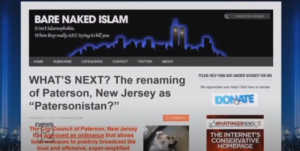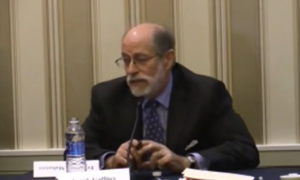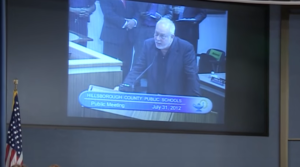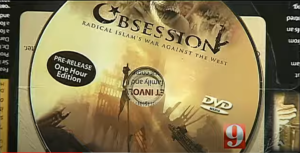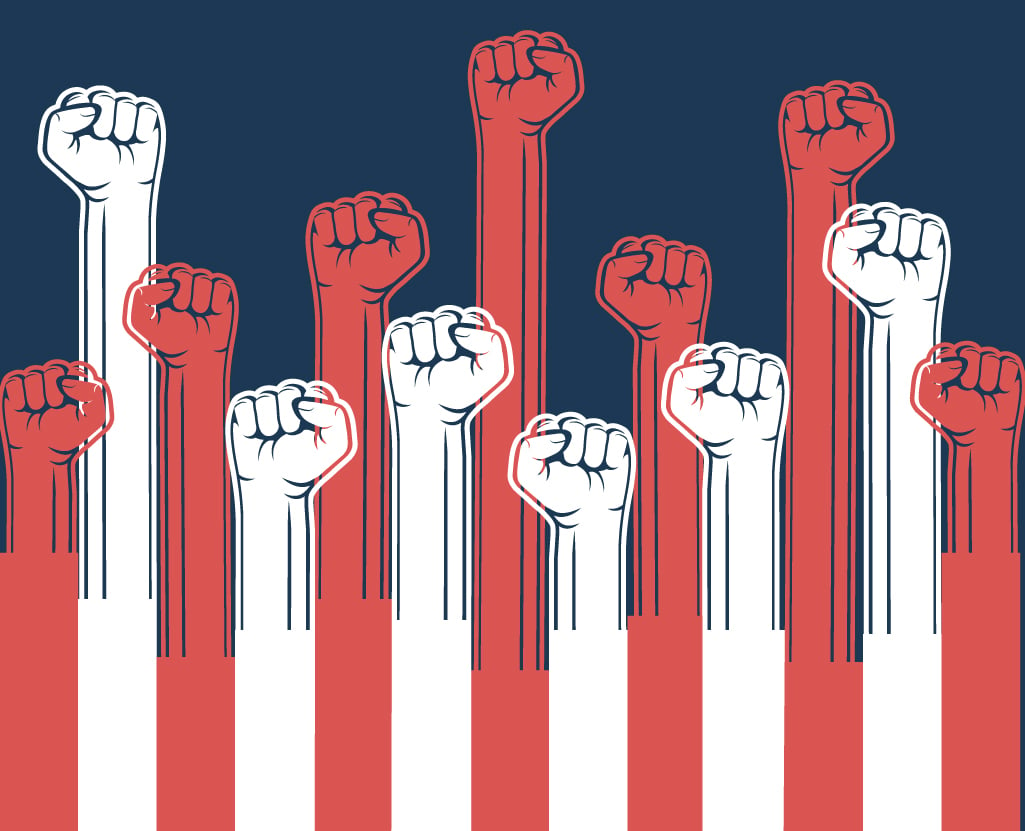Executive Summary
For now over twenty years, the FBI has detained, surveilled, harassed, and destroyed the lives of innocent Muslims. The public record amply documents how these abuses, inflicted via always-expanding FBI powers, led not to a reduction in terrorism, but painful, farcical, and often dangerous abuses of Muslims.
The federal government’s multi-decade effort to recruit a vast network of informants inside the Muslim community, with all the lawlessness and acts of intimidation such an effort entails, has nothing to show for it. The same goes for the practice of patting down some Muslim babies and their diapers for explosives at airports, the policies that cause federal agents to handcuff Muslim mothers and fathers returning to this country, often at gunpoint, in front of their crying and terrified children, and all the interrogations of Muslims in their homes and while traveling about how often they pray and which mosque they go to.
The federal government’s habit of abusing Muslims is so rooted that it repeatedly overwhelms reason itself. On May 1, 2023, the Secret Service barred an elected official, Mayor Mohamed Khairullah of Prospect Park New Jersey, from entering the White House for an Eid celebration the president invited him to attend because of a secret status the FBI had assigned him years ago without notice or explanation.
All of this injustice comes from a list. This list goes by various names—the terrorist watchlist, the Terrorism Screening Database, or as the FBI recently rebranded it, the Terrorism Screening Dataset. The No-Fly List is equally famous, but rather than an actual list, the No Fly List is simply a designation some people on the watchlist get, singling them out for the additional punishment of being unable to fly.
It has long been clear to the Muslim community itself that the FBI’s list is nothing more than a list of innocent Muslims. The consequences of being on the FBI’s list are borne almost exclusively by Muslims, and even individuals who openly espouse political violence generally do not find themselves similarly targeted so long as they themselves are not Muslim.
And now the evidence is no longer anecdotal. CAIR has studied more than 1.5 million entries on a 2019 version of the FBI’s list, provided to us by a Swiss hacker who found them online after a regional air carrier accidentally posted them to the public internet. One scroll through it reveals a list almost completely comprised of Muslim names. In fact, more than 350,000 entries alone include some transliteration of Mohamed or Ali or Mahmoud and the top 50 most frequently occurring names are all Muslim names. Of the watchlist entries we’ve reviewed, we estimate that more than 1.47 million of those entries regard Muslims—over 98 percent of the total.
For twenty years, the FBI’s secret list has brought hardship and fear to the Muslim community. But the FBI’s next million targets won’t be Muslim. With the War on Terror fog lifting, the FBI’s secret list will one day find a new target. The next targets will be our fellow Americans, and this report is meant as a warning to them.
We are raising the alarm. This can and will happen to all of us, from every community, even those beyond the Muslims currently filling the FBI’s list. We call on all Americans to join our demand that the FBI stop sharing its secret list as a first step to responsibly unwinding it.
History of the FBI’s Watchlist
When President George W. Bush signed HSPD-6 on September 16, 2003, neither he nor anyone else had seen what the FBI would spend the next twenty years building. Armed with a post 9/11 national security authority no one questioned, the FBI built what federal officials call a “watchlisting enterprise,” a dystopian project based on a secret list of millions, placing the innocent people named in a personal hell they can’t escape.
The FBI heads this “watchlisting enterprise,” billing it as practical way of putting to use the vast information federal agencies collect. And it is a vast universe of information the federal government collects. In response to 9/11, the federal government used new legal authorities—some conferred by Congress, others conjured from thin air—to make surveillance of innocent activity more comprehensive. In particular, the FBI aggressively surveilled the Muslim community, saturating mosques with informants who reported on the innocuous happenings of law-abiding religious gatherings. There was a lot of information the FBI was amassing, despite almost no actual crime to investigate.
Faced with this avalanche of data, the FBI offered a solution. The FBI claimed it could distill all this information into a single list of names. The idea was that the FBI would sift through government data and decide who was and was not a threat, and reduce it all to a list of names. Other agencies would be invited to review and collect their own information and then, if the agency wanted to, it could ask the FBI to add a name to the list. Even other countries could suggest names. As new information poured into the system, it fueled the FBI’s ever-growing list of names.
The FBI’s pitch has been irresistible. Other federal agencies, tens of thousands of police departments, dozens of foreign countries and hundreds of private companies use the FBI’s list. And by creating a list that pretends to distill the federal government’s knowledge of terrorist threats and enmeshing that list in as many government-screening processes as possible, the FBI found a way—for the first time ever—to automate how a person is treated across all domains of life: at the border, during travel, applying for a federal job or clearance or to get certain licenses or permits, and so on.
The FBI expends great efforts to ensure the status they assign people follows them wherever they go by disseminating the list as widely as possible. And to this end, the FBI has been astonishingly successful. From nothing in 2003, the FBI’s list has acquired a global reach. The FBI disseminates it throughout the federal government, to airlines, to every police department in the country, to hundreds of private companies, and to an always-growing roster of foreign countries—asking each to take action against the listed people encountered. In exchange for receiving the list, the FBI asks those encountering listed people—officers during a traffic stop, ticket agents at the airport, courts making bail decisions, federal agencies reviewing job applicants, border agents screening travelers—to gather up information during the encounter and provide it to the FBI to fuel the next round of additions to their list.
The FBI’s list creates a kind of second class status
A person’s watchlist status is life-defining. Made without notice by a government official whose name will never been known, this is the FBI’s way of formally branding a person a so-called KST—a “known or suspected terrorist.”
The status is used by government agencies to harass and humiliate people when they travel, to outright forbid people from flying, to deny individuals licenses and permits, to refuse to hire people or fire people already employed, to delay or deny visas and applications for US citizenship or a US passport and subject the innocent people on the list to dangerous and invasive law enforcement actions. As one federal judge put it, a person’s watchlist status “transforms a person into a second-class citizen, or worse.”
Among the known, essentially automatic effects of watchlist placement are:
Travel difficulties. Some individuals on the watchlist are barred from flying into, out of, or through U.S. airspace, a life-altering limitation on their constitutional right to travel. The government often extrajudicially exiles people by imposing this flight ban when they are abroad, leaving them stranded in a foreign country without the ability to fly home to the United States. For example, a Muslim citizen residing in Texas planned to return from Jordan to the United States to settle down with his family in California in 2013. To his shock, on the day of his trip, he was informed by an airline ticketing agent that he would be denied boarding. Bashar was not able to re-enter his home country for three years.
Others on the watchlist not barred from flying by the FBI, though they are formally permitted to fly, must undergo extensive, humiliating security measures when they travel. They are commonly unable to check in for flights and print their boarding passes until an airline agent seeks permission from the Department of Homeland Security and then subjected to extensive and invasive searches at TSA checkpoints and at the boarding gate, oftentimes causing them to miss their flights. Their travel companions—sometimes including young children—are also heavily scrutinized.
When watchlisted individuals return to the United States from abroad, they are escorted to windowless interrogation rooms by officers. There, the officers search their luggage, subject them to pat-downs and other invasive body searches, question them about their travel—and may also ask intrusive questions about their religious practices and beliefs, their Muslim friends and family, and mosques they attend. One of our clients, for example, endured an interrogation “about his Islamic faith, how he prays, how long he has been attending his mosque, who he knows at his mosque, how he finds the strength to practice Islam, and whether he struggles with practicing his faith.” Another client has been asked why she wears hijab, why her daughter does not wear the hijab, and whether she could explain the differences between Sunnis and Shias. That client was also told by an FBI agent “that she has to remove her hijab if she wants to avoid travel delays.”
In those interrogations, officers demand that watchlisted individuals unlock their electronic devices, like phones and laptops, and hand them over to be searched. Those demands are often accompanied by threats. One client, for example, was told that he “was required by law to provide the passwords to his electronics” (untrue), that the officers “could detain him indefinitely” (also untrue), and “that he has no rights at the border” (untrue again). If someone refuses to unlock their devices, officers often seize the devices for days or weeks. Sometimes an individual’s phone or laptop disappears into government custody forever, never to be returned.
The traumatic travel ordeals aren’t confined to airports. At land border crossings, watchlisted individuals are frequently swarmed by CBP officers, held at gunpoint, handcuffed, and interrogated for hours. They may even be detained in dangerous conditions. Anas Elhady, a college student driving home to Michigan from a visit to Canada, was detained and interrogated for hours by CBP officers in a freezing-cold cement cell wearing only his shirt, pants, and thin socks. Officers ignored his requests for more clothing or a blanket until he lost consciousness from the cold and was transported to a hospital.
And international travel can be even more dangerous. Not only does the FBI send its list to every federal agency, police department in the country, to universities and colleges, and thousands of private entities (including railroad companies, heavy industry, and even animal shelters), it also provides watchlist status to more than 60 foreign governments. Many of those foreign governments have troubling human rights records. And so innocent US citizens on the watchlist have been detained in inhumane conditions, and sometimes tortured, for pretextual reasons or no reason at all.
Immigration complications. Being on the FBI’s list means that your applications for visas, immigrations benefits, even for a passport will be subject to a separate, more onerous process for you and your family. Watchlisted individuals have reported immigration applications delayed for years on end, stuck in a loop of “administrative processing” as the government runs endless background and security checks. These delays can have devastating effects on families, who may be separated for years as the process drags on without any information about if their loved one’s visa application will ever be processed.
FBI encounters. To place someone on the watchlist, the federal government does not require that an individual be investigated in connection with any actual or attempted crime. Yet, many on the list receive visits from FBI agents—including visits in which agents attempt to use an individual’s watchlist status to coerce them into becoming FBI informants. Several of our clients report that FBI agents promised to remove them from the watchlist if they agreed to provide information about members of their local Muslim community to the FBI. This also leads to the inescapable implication that some people have been put or maintained on the watchlist or No Fly List as leverage, rather than because they are a legitimate threat.
Police violence. The federal government distributes the watchlist to state and local law enforcement agencies across the country but retains little control over how those agencies use the list. As a result, watchlist placement leaves listed individuals at risk of harassment, abuse, and violence at the hands of state and local law enforcement.
Permits and licenses. Watchlisted individuals have been denied gun permits, trucking credentials, and other licenses and permits distributed by both government and private entities.
Professional consequences. Watchlisted individuals consistently have their security clearances revoked. The loss of clearance or professional license can have devastating consequences—our clients have lost government contracts and even been fired from their jobs after losing a clearance. Beyond security clearance revocation, being watchlisted can interfere with someone’s day-to-day performance of certain jobs. For example, one client, an Uber driver, was denied entry to a military base and handcuffed by guards when he attempted to pick up a passenger—all because of the driver’s status on the FBI’s list.
Access to government buildings. On May 1, 2023, America’s longest serving Muslim mayor – Prospect Park Mayor Mohamed Khairullah – was disinvited by the Secret Service from the White House’s Eid al-Fitr celebration event due to a watchlist status an FBI official previously assigned him. The Council on American-Islamic Relations concluded this after reviewing a leaked copy of the watchlist from 2019, which includes lists the mayor. Despite calls from Mayor Khairullah and several members of the New Jersey congressional delegation, including Senators Cory Booker and Bob Menendez and US Congressman Bill Pascrell to provide a “detailed explanation of what occurred and why,” to “provide Mayor Khairullah with the substantive reasons he was denied admission,” and a “review of Mayor Khairullah’s status” on the FBI’s list, the agency has been silent, claiming a need for secrecy to avoid explaining what happened and why. But beyond this high-profile event, other people on the watchlist are denied access to military bases, to some public buildings, and other government-secured areas.
The standards used by the FBI don’t limit how officials assign the status
When the FBI created the list, they also created a vague standard for putting people on the list. All that one is needed to be declared a terrorist by the government is for someone in the government to “reasonably suspect” a person “to be, or has been, engaged in conduct constituting, in preparation for, in aid of, or related to terrorism and/or terrorist activities.” This language is unclear as it is broad. The conduct the government reasonably suspects someone of doing need not be criminal. And what facts constitute reasonable suspicion is likewise unclear. The government has admitted that race, religion, national origin, travel, protected speech, the study of languages and theology, and other constitutionally-protected and innocent conduct can be considered. The government provides little useful guidance as to what minimum conduct is required, and provides no restrictions on what innocent activity or innate traits can be considered. And the result is that government officials have nominated millions of people to the watchlist, and the Terrorist Screening Center, nominally entrusted with reviewing those nominations, have accepted over 99% of those nominations.
One federal judge observed that, because the standards are both vague and unrelated to illegal activity, “it is not difficult to imagine completely innocent conduct serving as the starting point for a string of subjective, speculative inferences” leading an FBI official to list you. This is exactly how the FBI’s list works in practice. Individuals may be added to the list for a stunning array of vague reasons. They may be added to the list for being an immediate relative of a listed individual or for being a “known” associate—that is a friend, co-worker, a fellow congregant—of a listed individual. They may be added without any information about whether an individual is actually a criminal threat. And the FBI takes into account race, religion, and ethnicity as well as the First Amendment activities of the agency’s targets.
And the federal government imposes this life-altering status on individuals without providing them with any notice or explanation. Those who have been banned by the FBI from flying only learn of their status when they are denied boarding on a flight. If they file a complaint, DHS will tell them what they already know, that they are subject to an FBI flight ban, and provide a brief, conclusory explanation for their decision. There’s no hearing, no evidence, no real opportunity to challenge the secret ruling that the FBI has made against you.
People on the FBI’s list who are not banned from flying receive no information at all. They often realize that something is wrong when they are detained and interrogated at the airport. If these people file a complaint, the federal government responds with only a boilerplate letter that “neither confirms nor denies” their watchlist status. Indeed, one of the key watchlist standards the FBI uses—the Selectee List standard—is still a government secret.
The FBI’s list displaces human judgment, because it is administered on a “because my computer said so” basis.
To the hundreds of thousands of police officers, federal agents, and government officials—foreign and domestic—who receive the FBI’s list, the list—disseminated digitally via single-state nodes throughout the country and exported in an ad hoc manner internationally—acts as a kind of digital overseer.
In a variety of contexts, law enforcement officers have a cabined discretion to deal with various situations based on the instructions given to the officer and the rights in play. So, for instance, CBP agents may perform certain basic searches of people at the border, and whether they do so for any particular person entering the country at a port of entry is up to them. More complicated searches, such as a forensic search of an electronic device, requires the CBP to have reasonable suspicion of some sort of border-related crime.
But what the watchlist does is provide, with brute force, a law enforcement officer with the supposed “conclusion” that someone is a terrorist, without any of the facts that the Government had used to come up with this conclusion. This does two things as a matter of course. One, it all but compels the law enforcement officer to use his discretion in the most invasive possible way. Two, it purportedly creates the supposed “reasonable suspicion” that would allow and encourage for more invasive or restrictive conduct. So those on the watchlist find their electronic devices not only can but are searched forensically every time they enter the country, with attendant detentions and interrogations.
The results of these increased law enforcement encounters compound. For Saadiq Long, status on the FBI’s list has affected him all over the world. The flight ban affixed to his watchlist status has prevented him traveling by air to visit his seriously ill mother in Oklahoma, then forced him to take circuitous, weeklong, overland journeys through Texas and Mexico in a desperate effort to avoid the FBI’s flight ban and get back to his family living overseas, led to his detention in Turkey when officials there received Saadiq’s status, the loss of his visa to enter Qatar, and prevented him from obtaining licenses and permits related to his work as a truckdriver. Saadiq’s watchlist status was why local police officers repeatedly pulled him over while he was driving, once at gunpoint and two stops left him handcuffed, because Oklahoma City cameras automatically screened his vehicle’s license plate against the FBI’s list and found a match.
Leaked copies of the FBI’s list expose it as simply a list of Muslim names more than a million entries long
On January 12, 2023, a Swiss hacker who goes by the moniker “maia” gained access to files containing more than 1.5 million names from the FBI’s list. The security researcher obtained these files—two Microsoft Excel spreadsheets—after finding them exposed and available for download on the public internet, having been carelessly left there by a small airline company, one of the tens of thousands of public and private entities all over the world to which the FBI distributes the watchlist.
CAIR obtained a copy of the files and has studied it closely. CAIR shared the leaked list with statistical experts for review to determine what percentage of the list is Muslim. The expert analysis of the people on the list—approximately 1.5 million entries—indicates that more than 98% of all records in the watchlist identify Muslims. And the No-Fly List was more than 99% Muslim. While Muslims comprise virtually the entirety of the watchlist, the actual terrorist threats to the country look much different: Federal law enforcement officials have repeatedly said that the biggest terrorist threats to our country come from white supremacists.
The FBI’s single-minded focus on Muslims is also shown from how Muslim travelers are interrogated about their faith at the border. When listed individuals return to the United States from abroad, they are escorted to windowless interrogation rooms by CBP officers. There, the officers search their luggage, subject them to pat-downs and other invasive body searches, and interrogate them. These interrogations have often focused on documenting a traveling Muslim’s religious practices and beliefs, their Muslim friends, family, and other associations, and the mosques they attend. One CAIR client, for example, endured an interrogation “about his Islamic faith, how he prays, how long he has been attending his mosque, who he knows at his mosque,” among other details about his faith. Another client has been asked why she wears hijab, why her daughter does not wear hijab, and whether she could explain the differences between Sunnis and Shias. That client was also told by an FBI agent “that she has to remove her hijab if she wants to avoid travel delays.”
These kinds of religious interrogations have long been a reviled part of the federal infrastructure surveilling the Muslim community. Federal agents have periodically interrogated some Muslim travelers on the FBI’s list, though they were US citizens, about their religious beliefs and practices. In fact, the government has taught border officers how to religiously profile Muslims, instructing agents to assess a person’s theological beliefs, ask prying religious questions, and then document a person’s level of religiosity—all based on the style of hijab a Muslim traveler might wear. Federal records that CAIR has obtained also reveal that border agents have ascertained and recorded whether citizens are Sunni, Shia, a “moderate Muslim,” or in the agent’s view, a radical or extremist.
The Government’s fixation on Islam is also seen in the FBI’s decision, in response to 9/11, to build a comprehensive network of informants in the Muslim community. To that end, the watchlist gave the FBI a powerful, often-used tool to coerce people—where the FBI will tell someone that it can help make their travel problems go away so long as they agree to spy on their local mosque for them. Examples abound: a Muslim teenager banned from flying and then recruited as an informant, a Muslim college student pressured to spy on his Libyan American community, and a Muslim mother surveilled by federal agents as she walks with her family at the airport.
Recommendations
The FBI’s list not only ruins the lives of people who are on it but it follows them wherever those people go. With the list, an FBI official in the DC suburbs can assign an American citizen a status that will, for example, instantaneously interfere with that person’s ability to get a visa to India, prevent them from boarding any plane that traverses US airspace, deny that person’s spouse the immigration benefit needed to get married and live together in this country, and then cause that person to be handcuffed at gunpoint during a traffic stop. It is a substantial power without precedent in American history.
Congress did not give the FBI this authority. There is no law that made the watchlist. And even the presidential executive order that supposedly gave rise to the FBI’s list did not put the FBI in charge. Instead, it was an agreement between several agencies that put this list and all the authorities having a list entails in the hands of the FBI.
But neither the FBI nor any other government agency should have a secret list. They’ve abused the one that they have now, and there is no such thing as a good, lawful kind of secret government list made available to hundreds of thousands of government actors. It is time to bring this practice to a close.
We call on all Americans to join our demand that the FBI to stop sharing its secret list as a first step to responsibly unwinding it.

